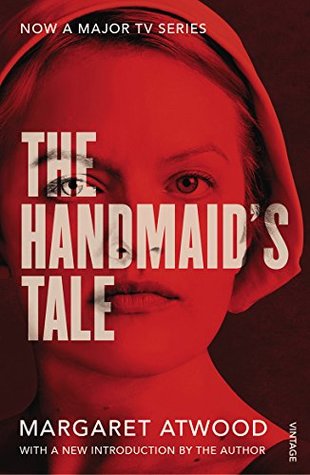
The Handmaid's Tale is a radical departure for Margaret Atwood. Set in the near future, in a locale that oddly resembles Cambridge, Massachusetts, it describes life in what was once the United States. Now, however, it has become the Republic of Gilead, a monolithic theocracy that has reacted to social unrest and a sharply declining birthrate by reverting to the repressive intolerance of the original Puritans, and has gone far beyond them. This regime takes the Book of Genesis absolutely at its word, with bizarre consequences for women, and for men as well.
The story is told through the eyes of Offred, one of the unfortunate "Handmaids" under the new social order. In condensed but eloquent prose, by turns cool-eyed, tender, despairing, passionate, and wry, she reveals to us the dark corners behind the establishment's calm facade, as certain tendencies now in existence are carried to their logical conclusions.
the Handmaid's Tale is A Clockwork Orange as seen by women: unexpected, funny, horrifying, and altogether convincing. the book is at once a mordant satire and a dire warning. this is Atwood in top form.
--front flap
I understand the cultural relevance of this novel and why it has come around in popularity again.
For me, it just wasn't my cup of tea. I wanted to know more about everything happened especially after listening to the historical note at the end. If that hadn't been included, I feel I might have enjoyed the book more. I felt the addition of the conference notes were jarring and a bit "I know something you don't know" and that pissed me off.
Reading updates
-
Started reading
-
7 July, 2019:
Finished reading
-
7 July, 2019:
Reviewed
